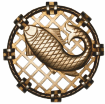Tourism and Recreation
AUTUMN SEMESTER 2019/2020 | SPRING SEMESTER 2019/2020 | ||
1. Fundamentals of tourism | 5,5 ECTS | 1. Swimming with elements of sport training | 1.0 ECTS |
2. Fundamentals of recreation and leisure organization | 5.5 ECTS | 2. History of architecture and art | 4.0 ECTS |
3. Tourist regions of Poland | 3.0 ECTS | 3. Physical recreation | 2.0 ECTS |
4. Recreational games and activities | 2.0 ECTS | 4. Recreational management and use of water | 3.5 ECTS |
5. Tourist traffic services | 5.0 ECTS | 5. Tourist geography | 5.0 ECTS |
6. Sightseeing | 3.5 ECTS | 6. Ecology and environmental protection | 3.5 ECTS |
7. Sociology and pedagogy of free time | 2.0 ECTS | 7. Information systems in tourism and recreation | 2.5 ECTS |
8. Health promotion | 3.0 ECTS | 8. Tourism and recreation for older and disabled people | 2.0 ECTS |
9. Wellness | 2.0 ECTS | 9. Ornithological tourism | 2.0 ECTS |
10. Agrotourism | 2.0 ECTS | 10. Forms of outdoor recreation | 3.0 ECTS |
|
| 11. Anthropomotorics | 2.0 ECTS |
|
| 12. Culinary Heritage | 2.5 ECTS |
fields of study: Tourism and recreation
Autumn semester 2019/2020
1. Fundamentals of tourism (autumn semester, ECTS 3.5). Basic terms concerning tourism. Characteristics of basic tourism forms. Tourist activity of the people. Practical field classes in different tourist forms: business, cultural, sightseeing, religious, motivating, wellness. Economical, political, social and cultural considerations of tourism. Influence of tourism over natural environment and human life. Motives and needs for practicing tourism. Organization of tourism in Poland and worldwide. Methodology of scientific research in tourism.
2. Fundamentals of recreation and leisure organization (autumn semester, ECTS 5.5). Basic concepts of recreation. An outline of the history of recreation. Recreation organization sectors in Poland and selected other countries. Biological basics of recreation. Psychology of recreation. Professional work and recreation. Barriers restricting recreational activities in society. Factors in development of modern recreation. Environmental and education facilities for recreation.
3. Tourist regions of Poland (autumn semester, ECTS 3.0). Delimitation of Poland's tourist regions. Characteristics and evaluation of the values of particular regions (leisure, recreational, educational, cognitive and metropolitan values). History, characteristic elements of the landscape, peculiarities and uniqueness of particular regions of Poland. Designing a tourist route in a selected region of Poland.
4. Recreational games and activities (autumn semester, ECTS 2.0). Theoretical aspects of games and recreational activities: the origin of games and activities, definitions, characteristics and features of games and activities, their significance, categories of games and activities. Techniques, tactics and rules of selected team games. Equipment used in recreational games. Teaching movement activities (stimulating, running, kicking, throwing, etc.).
5.Tourism traffic services (autumn semester, ECTS 5.0). Basic concepts in tourism, determinants of its development. Tourist traffic – types, service types, legal aspects. Customer service culture and ethics of the profession. Travel agents – tour operators, tour agents, travel agents – characteristics. Tourist service in accommodation and catering facilities.
6. Sightseeing (autumn semester, ECTS 3.5).The development of local history activities. The role of local history in modern society. The relation of local history and tourism. Forms and directions of local history development. Local history tourism. Local history regionalism. Methods and means of popularisation of knowledge of local history. Shaping the needs and interests of local history.
7. Sociology and pedagogy of free time (autumn semester, ECTS 2.0). The role of leisure time in nowadays life. Basic functions of leisure time. Methodology of leisure time research. Cultural and recreational forms of leisure time. The influence of family, school, cultural institutions and social media on leisure time. Animation of leisure time in tourism. Social changes versus leisure time. Education and prevention of improper behaviors in leisure time. Internet, video games and other forms of spending leisure time.
8. Health promotion (autumn semester, ECTS 3.0). Healthy aspects of participation in tourism and recreation. World-wide addictions: tobbaco, drugs, alcohol. Choosen global diseases: hypertension, obesity, coronary. Health risk in tropical and sub-tropical areas. Healthy aspects of nutrition. Health promotion at school. Health prevention during trips and excursions. Social aspects of health and well-being.
9. Wellness (autumn semester, ECTS 2.0). Objectives and criteria of sports medicine with special emphasis on biological renewal. Criteria of health and disease. The effects of training. The problems of fatigue and rest as components of physical activity. Factors enhancing physical performance. Permitted and forbidden assistance. Damage associated with physical activity and participation in sport.
10. Agrotourism (autumn semester, ECTS 2.0). History and origin of agrotourism. Organization and functioning of an agritourism farm. Expectations and behavior of agrotourism services consumers. Adaptation of the residential and farm buildings for the agritourism. Arrangement of accommodation, sanitary and catering facilities. Responsibilities of owners of agritourism farms and rural tourism facilities.
Spring semester 2019/2020
1. Swimming with elements of sport training (spring semester, ECTS 1.0). Passing on the knowledge about rules and regulations of swimming. Learning and perfecting the techniques of the following strokes: backstroke, freestyle, breaststroke, butterfly. Learning how to dive and turn. Technical exercises in and out of water. Theory of structured sport training. The advanced swimmers perform the tasks involved in structured sport training.
2. History of architecture and art (spring semester, ECTS 4.0). The subject of the lectures will be the history of world architecture, mainly focused on European architecture. The lectures will show, in chronological order, the forms of its development, as well as borrowings, imitations and characteristic details of each period.
3. Physical recreation (spring semester, ECTS 2.0). Social and cultural foundations of physical recreation. Physical recreation in different social and age groups. Role of physical recreation in health promotion and prophylaxis of global diseases. Role of school and family in promotion of physical recreation in children. Schedule of recreational exercise class. Planning physical recreation - social and individual approach. Modern trends in physical recreation. Organization of sport and recreational events. Health training versus sports training - differences and similarities. Selected methods of physiotherapy in recreation.
4. Recreational management and use of water (spring semester, ECTS 3.5). Definitions, distribution and characteristics of water resources contrasted with their recreational function. Recreation bio-climate of natural and artificial bodies of water and characteristics of its modifiers. Physiographic conditions and the recreational functionality of rivers and reservoirs. Conditions of recreation use of surface waters and their economical and industrial functions.
5. Tourist geography (spring semester, ECTS 5.0). Definition and elements of tourism geography. History and development of tourism geography. Tourism geography in the structure of geographic sciences and its relations to other areas of knowledge. Methods of assessment of the attractiveness of a geographic environment for tourism needs. Tourist space and tourist settlements.
6. Ecology and environmental protection (spring semester, ECTS 3.5). The scope of ecology. The need for knowledge of ecology in tourism. Habitat – the universe, the origins of the Earth, the atmosphere, temperature, radiation, water, soil, natural resources and climate. Thermodynamics and equilibrium in nature. Autecology and synecology. Ecosystems – functioning, types. Biomes. Dynamics of biocenoses. Ecology of populations. Competition, predation, parasitism, mutualism. Agroecology and organic agriculture, human ecology, landscape ecology, urban ecology, tourism ecology.
7. Information systems in tourism and recreation (spring semester, ECTS 3.0). Information systems – an introduction. Software used in small travel offices and agencies, allowing for running business websites. Content management systems (CMS). Definition of principles of selection criteria for the most suitable software to use in a tourism business. Rules for implementation of new software in a company.
8. Tourism and recreation for older and disabled people (spring semester, ECTS 2.0). Sorts of disability. Legal regulations concerning disabled people. Paralympic Games and Special Olympic Games - history and organization. Social approach of disability. Disabled sportsmen as a fully valuable member of society. Extension of recreational services for disabled people. Limitations in sport and recreation of disabled people. Utilization of physical exercises in therapy of disabled people. Role of Olympic movement in popularization of physical activity in disabled people. Sport or physical recreation - which activity is more beneficial for disabled people?
9. Ornithological tourism (spring semester, ECTS 2.0). Biology of most-common watched birds. Tools used in ornithology tourism: binoculars, telescopes, cameras. Preparation of observation post. Bird-watching as a most popular sort of natural tourism. Presentation of popular places for ornithology tourism. Preparation of ornithology tourist expedition: season, location, formal demands, limitations). Services of ornitholgy tourism offerd by Polish and international tourist organizations.
10. Forms of outdoor recreation (spring semester, ECTS 3.0). Influence of outdoor physical activity into human health: aroma-therapy, color-therapy, helio-therapy. Characteristics of selected outdoor recreation: ice skating, downhill skiing, sailing, parachuting, paint-ball. Practical classes in selected outdoor activities: jogging, cycling, quest - city game, beach volley ball, canoeing, street basketball.
11. Anthropomotorics (spring semester, ECTS 2.0). Human motor activity as the subject of theoretical studies. Motor skills and human motor activity: the basic concepts. Human motor development in ontogeny. Genetic conditions for motor predispositions and skills. Physical activity in optimisation of body mass and composition. Physical activity and aging in individuals and the general population. Assessment of physical activity level. Prophylactic significance of increased physical activity.
12. Culinary heritage (spring semester, ECTS 2.5). Tradition, origin and history of selected regional products in Poland. Structure and objectives of the European Network of Regional Culinary Heritage. European and Polish systems of traditional and regional food protection. The development of traditional food production based on local raw materials using traditional methods. Local food products as an element of tourism development in Polish regions. Polish and European culinary trials.


